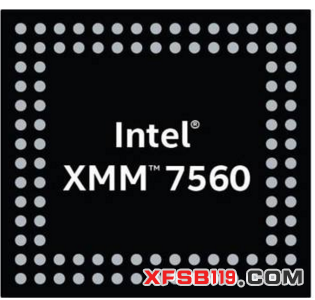Apple on Wednesday launched a counterclaim against Qualcomm, which developed Xiaolong said the smart phone chips infringe on Apple's patents, Qualcomm and then complained that Apple infringed five patents involving iPhone8 and iPhoneX. 

This is the latest part of the series of lawsuits and mutual accusations of the two industry giants. A veteran of the communications industry, which has been in constant contact with the two companies, said that Apple has launched a comprehensive battle against Qualcomm, with the goal of making baseband chips for itself and integrating them with its own CPU.
Earlier, some media reported that Apple will purchase Intel and MediaTek's baseband chips, but this is not Apple's ultimate goal. The cooperation with these two companies is only the transition mode of Apple's self-developed baseband chips.
There are two major circuits in the mobile phone: one is the high-level processing part, which is equivalent to the computer; the other part is the baseband, which is responsible for completing the demodulation, descrambling, despreading and decoding of the wireless signal in the mobile network, and will eventually decode the completed number. The signal is passed to the upper processing system for processing.
One chip internal operation, one external interconnection. The trend in recent years is that two chips are brought together, Qualcomm does this, and Huawei and Samsung do the same. The result of this is faster computing and more energy saving. These two aspects are very important for mobile phone users.
However, because Apple's CPU chip is made by itself, and the baseband is purchased by Qualcomm and Intel, there is no way to bring the two together. If you can get together, you can make the advantages of Apple's mobile phone more obvious.
Apple is accustomed to controlling the production of key components, such as Apple's mobile phone using the A series of chips, giving up the graphics chip (GPU) provided by Imagination, and using its own developed GPU. Apple is gradually getting rid of its dependence on key suppliers.
In turn, Qualcomm is in a dominant position in mobile phone chips and patents, and has cooperated well with Apple before, but it also has constraints. In January, Apple asked the California court to rule that Qualcomm returned a $1 billion licensing fee concession and lowered future patent licensing standards. This is the beginning of a public break between the two companies.
In April of this year, Apple announced that it would stop paying patent fees related to Qualcomm. In September, Qualcomm applied to ban iPhone products in China. Every few months there will be news of mutual complaints.
Qualcomm mainly sued Apple for infringing its patent rights, and Apple mainly sued Qualcomm for excessive charges. It is still rare for Apple to sue Qualcomm for infringing its patents.
For Qualcomm, there is no way out for Apple's battle. Apple is the most profitable mobile phone manufacturer in the world, and has the ability to pay royalties. Apple has not many patents in the field of communication, and there is no way to bypass Qualcomm. In addition, both are in the United States, and the protection of patent rights in the United States is very strong.
Baseband chips are inexpensive, but the collection uses a lot of patented technology. Because the communication standards of communication carriers vary from country to country, baseband chips must adapt to the needs of various operators. Qualcomm has unique advantages in this regard. Qualcomm has a variety of standard patents in the communications industry, with 130,000 patents, of which only 10% are related to chips.
Qualcomm's total research and development in fiscal year 2002-2017 was $46.8 billion. Last year, Qualcomm's R&D investment totaled US$5.1 billion, which was one-fifth of its revenue and nearly two-thirds of its patent licensing business revenue ($7.5 billion).
The revenue granted by the patent can support Qualcomm's continuous research and development. Qualcomm is also one of the few companies that rely mainly on patent licenses to survive. This also allows Chinese mobile phone manufacturers to use off-the-shelf technology without the need for long-term research and development. This is also the place that many people think Qualcomm deserves support. However, there is no uniform standard for the amount of patent fees, and companies that are charged are always overcharged.
Even if Apple can do baseband chips, it will not be able to circumvent Qualcomm's patent royalties, and still have to pay a huge amount of patents to Qualcomm. Qualcomm can make up for the lost back at any time by raising the patent fee. This is estimated to be a bit of an apple headache.
Steel Measuring Tape,Aluminum Level,Fiberglass Tape Measure,Digital Depth Gauges
SHAOXING SINO IMPORT & EXPORT CO.,LTD , https://www.sxsmarto.com
